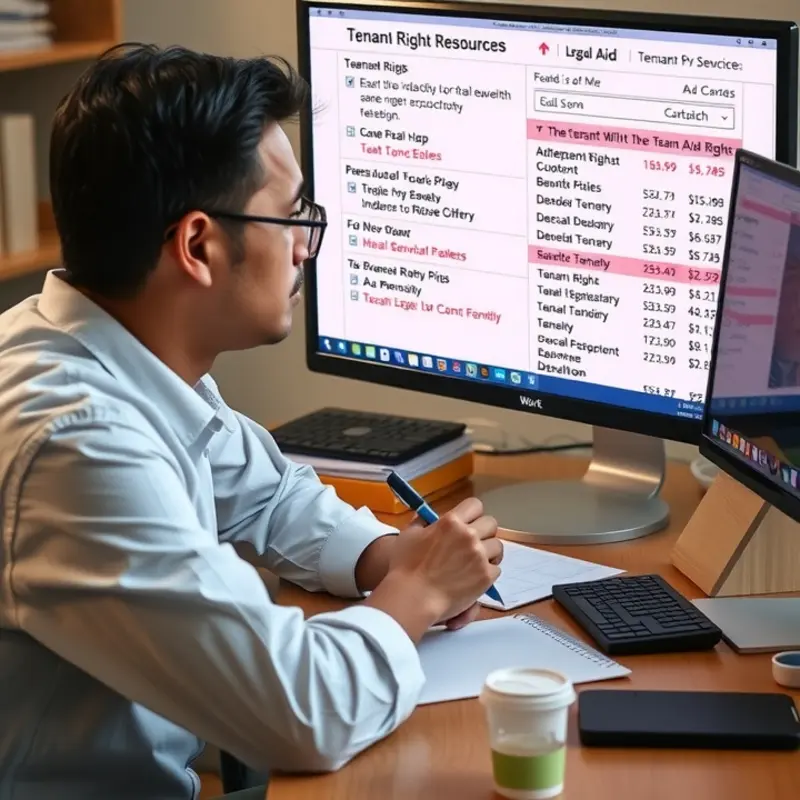As a young professional, student, or a family venturing into the rental market, understanding your tenant privacy rights is crucial. With the common experience of moving frequently, you may feel overwhelmed by lease agreements and the rules that govern your living space. Privacy is a fundamental aspect of your renting experience, and knowing what you are entitled to can safeguard your comfort and peace of mind. From unauthorized entries by landlords to the handling of your personal information, being informed about your rights allows you to assert them confidently. This guide aims to clarify tenant privacy rights to help you navigate leases comfortably, making informed decisions about where to live and how to protect your privacy in a rental situation. Armed with this knowledge, you can ensure that your home is truly your sanctuary.
Your Right to Privacy in a Rental Property

As a tenant, understanding your right to privacy in a rental property is crucial for fostering a respectful and legally compliant relationship with your landlord. This knowledge empowers you to know what landlords can and cannot do regarding your personal space.
First and foremost, privacy rights vary across different jurisdictions, but generally, landlords must provide notice before entering your rental unit. Notice periods can differ depending on the local law, but a common timeframe is 24 to 48 hours. Landlords usually need to provide this notice in writing, specifying the purpose and time of entry.
There are specific permissible reasons for a landlord to enter your property. These typically include performing necessary repairs, inspecting the property, or showing the rental to prospective tenants or buyers. Entry is also often allowed in emergencies without prior notice, but the landlord should inform you of the entry and its reason as soon as possible after the fact.
Communication with your landlord about these entries is always beneficial. It provides an opportunity to establish a mutually respectful understanding of how and when such entries will occur. Additionally, a good relationship can make it easier to resolve any potential disputes.
If you believe there has been a breach of your privacy rights, you have several options. Initially, it’s advisable to have a conversation with your landlord to see if the issue can be resolved amicably. Document any unauthorized entries or situations where proper notice was not given, as this is crucial if you need to escalate the issue. If the problem continues, review your lease agreement and local tenant laws to understand your rights and any potential legal remedies.
It might also be beneficial to seek advice from tenant advocacy groups or legal professionals who can guide you on the appropriate steps, including filing a formal complaint or pursuing legal action. Holding breaches accountable not only protects your privacy but also can prevent similar issues for future tenants.
A proactive approach to maintaining your privacy can include simple measures such as installing renter-friendly locks or using DIY solutions that do not damage the property. For more ideas on enhancing security and privacy without altering the property permanently, you can explore apartment-friendly DIY cleaning products that cater to a tenant’s needs.
Staying informed about your privacy rights ensures you can enjoy your rental property without unwarranted intrusions. It also helps maintain a balanced power dynamic with your landlord, underscoring a respectful landlord-tenant relationship rooted in legal guidelines.
Handling Breaches of Privacy

Experiencing a breach of your privacy as a tenant can be unsettling and may leave you wondering what steps to take next. Understanding how to address such situations can empower you to protect your rights effectively. Documentation is the first crucial step. Begin by maintaining a detailed record of each incident, including dates, times, locations, and descriptions of events. Include any communication with your landlord or property management, as well as photographic evidence if applicable. This documentation will support your claims and can be vital if legal action becomes necessary.
Next, initiate a conversation with your landlord. Clear and open communication can often resolve misunderstandings before they escalate. Present your documented evidence and discuss your concerns. Your landlord may not be aware of the breach or its impact on you. Expressing your unease can prompt them to take corrective action or prevent future occurrences.
If direct communication does not yield satisfactory results, seek mediation or legal advice. Your local tenant association or housing authority can provide guidance and resources. They may offer mediation services to facilitate resolution between you and your landlord. If these measures fall short, consulting with a lawyer specialized in tenant rights can offer clarity on legal recourse. Knowing your legal rights is pivotal in determining the feasibility of pursuing further action.
Learning about local tenant privacy laws is also essential. Regulations can vary significantly from one location to another. Familiarizing yourself with specific rules governing landlord conduct in your area can bolster your case. Online resources and local legal aid organizations often provide valuable insights pertinent to your location.
Proactive steps can help safeguard your privacy going forward. For instance, consider discussing apartment layout adjustments or security measures with your landlord that protect your privacy. You might explore using security devices like cameras or alarms where allowed by law.
As you navigate these challenges, remember that you are not alone. There are numerous resources available to support tenants facing similar issues. Articles like this one on apartment safety can offer additional insights on surrounding factors related to tenant living.
Ultimately, tackling a breach of privacy involves a blend of personal initiative and leveraging available resources. By understanding your rights and taking decisive action, you can secure a more respectful and secure living environment.
Final words
Tenant privacy rights are essential for ensuring a pleasant and peaceful renting experience. Understanding what is legally permissible can help you feel secure in your home. Always remember that you have the right to privacy, and being aware of what constitutes a breach will empower you to take action when necessary. By staying informed, you can create a trusting relationship with your landlord while safeguarding your living environment. Make your home a true sanctuary by knowing your rights and advocating for them when needed.









